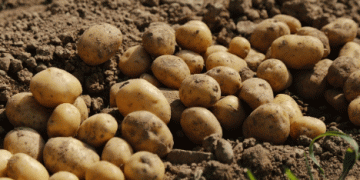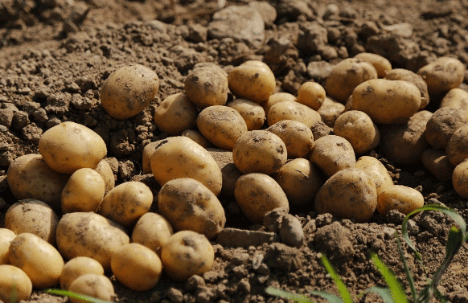The Greek potato season, a staple for both domestic consumption and exports, is nearing an unusually early conclusion in 2024. Producers from Nevrokopi, the country’s primary potato-growing region, report that supplies will likely be depleted by December—two months earlier than usual. A combination of reduced cultivation area, water scarcity, and extreme summer temperatures has led to this unprecedented situation.
Reduced Acreage and Lower Yields
The most significant factor driving the early end is the sharp decline in cultivation. According to Iosif Kokkinidis, a representative of the Agroteam Perithori Producers’ Organization, the planting area shrank from 1,700 hectares in the previous season to just 850 hectares this year. This halving of acreage reflects the challenges farmers face, particularly in securing adequate water resources during a season marked by drought and high heat.
- Drought Impact: A lack of water significantly affected crop growth, reducing yields and accelerating harvesting timelines.
- Early Sprouting: High temperatures led to premature sprouting, which shortened the storage life of harvested potatoes and forced farmers to sell earlier than usual.
Demand and Market Dynamics
Despite the production challenges, demand for Greek potatoes remains strong. Kokkinidis notes:
- Yellow Varieties in Demand: Yellow potatoes, preferred by wholesalers, are experiencing higher demand compared to white varieties, which are mainly purchased by supermarkets.
- High Domestic Demand: The quick sales indicate robust local market absorption, though storage limitations have constrained prolonged availability.
Export Competition
Exports to neighboring Balkan countries, a traditional market for Greek potatoes, present mixed outcomes:
- Price Sensitivity: Balkan buyers prioritize cost and typically purchase smaller potatoes (sizes 25–45 mm).
- Competition: Greek potatoes face increasing competition from Polish imports, as well as domestic pressure from German and French potatoes entering Greek markets.
What’s Next for Greek Potato Farmers?
The dual challenges of climate change and market pressures are reshaping Greek potato production. To address these issues, farmers and policymakers could consider:
- Improved Water Management: Investing in irrigation infrastructure could mitigate the risks of drought and stabilize yields.
- Diversification: Expanding into heat-resistant potato varieties may help adapt to rising temperatures.
- Market Positioning: Promoting the quality of Greek potatoes in premium markets could offset price competition in export markets.
The early end to Greece’s potato season in 2024 is a clear indicator of the growing pressures on agriculture from climate change and global competition. While strong domestic demand and export opportunities remain, the sector must adapt with improved resource management and strategic market approaches to ensure long-term sustainability. For farmers, balancing these priorities will be key to thriving in an increasingly volatile agricultural landscape.































